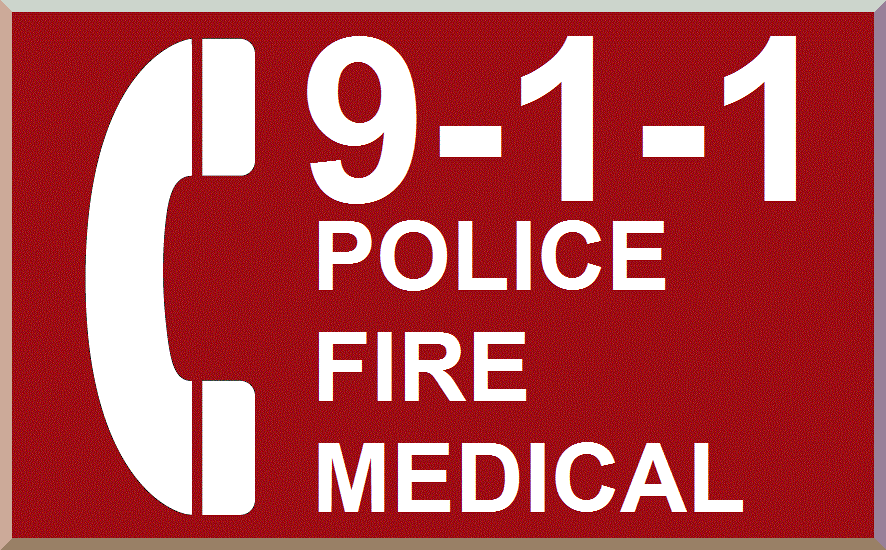Calling 119 is a crucial action that everyone should understand, especially during emergencies. Whether it's a medical crisis, a fire outbreak, or any other urgent situation, knowing how to effectively contact emergency services can save lives. In this article, we will delve into the significance of calling 119, the services it offers, and essential tips to ensure you are prepared in case of an emergency.
In recent years, the importance of emergency services has become more pronounced, with various campaigns aimed at educating the public about the right steps to take during emergencies. Understanding how to use the emergency number 119 can make a significant difference in the outcome of a crisis situation. This article aims to provide comprehensive insights into what calling 119 involves, the types of emergencies it covers, and how to communicate effectively with the operators.
As we explore this topic, we will also highlight the procedures involved in emergency calls, the role of different emergency services, and tips on how to remain calm under pressure. Whether you are a resident or just visiting an area, knowing how to call 119 can be an invaluable skill. Let's get started!
Table of Contents
- What is Calling 119?
- Services Offered by Calling 119
- How to Call 119 Effectively
- What to Expect When Calling 119
- Common Emergencies Covered by 119
- Important Tips for Emergency Calls
- Statistics and Data on Emergency Calls
- Conclusion
What is Calling 119?
Calling 119 refers to the designated emergency number that individuals can dial to access emergency services in many countries. This number connects callers to police, fire, and medical assistance. The establishment of a unified emergency number is intended to streamline the response process and ensure that help arrives as quickly as possible.
History of Emergency Numbers
The concept of a universal emergency number has evolved over time. Initially, different regions had various numbers for different services, which often led to confusion during emergencies. The introduction of 119 aimed to simplify this process, allowing individuals to remember a single number for all emergency needs.
Services Offered by Calling 119
When you call 119, you are able to access a range of services that are vital during emergencies. Here are the main services offered:
- Medical emergencies
- Fire and rescue services
- Police assistance
- Disaster response
Medical Emergencies
Medical emergencies can range from serious injuries to sudden health issues, such as heart attacks or strokes. When you call 119 for medical assistance, trained personnel are dispatched to the location to provide immediate care.
Fire and Rescue Services
In case of a fire or hazardous situation, calling 119 will connect you with fire services that can respond swiftly. Firefighters are trained to handle various emergencies, including rescuing individuals from dangerous situations.
How to Call 119 Effectively
Knowing how to call 119 is important, but it's equally essential to do it correctly. Here are steps to ensure your call is effective:
- Stay calm and composed.
- Provide your location clearly.
- Explain the nature of the emergency.
- Follow the operator's instructions.
What to Expect When Calling 119
When you call 119, you will typically be greeted by an operator trained to handle emergencies. Here’s what to expect:
- The operator will ask specific questions to assess the situation.
- They may provide you with instructions to follow until help arrives.
- Emergency services will be dispatched promptly based on the information you provide.
Common Emergencies Covered by 119
Understanding the types of emergencies that can be reported via 119 is crucial. Common situations include:
- Traffic accidents
- Severe medical issues
- Fires and explosions
- Crimes in progress
Important Tips for Emergency Calls
Here are some key tips to remember when calling 119:
- Keep your phone charged and accessible.
- Know your surroundings to provide accurate location information.
- Practice what to say in an emergency to reduce panic.
Statistics and Data on Emergency Calls
Research shows that quick response times are critical in emergencies. According to the National Emergency Number Association (NENA), the average response time for emergency calls should be under 10 minutes. Additionally, data indicates that effective communication during emergency calls can significantly improve outcomes.
Conclusion
Understanding how to effectively use the emergency number 119 can be a life-saving skill. By knowing what to expect when calling, the services available, and how to communicate effectively, you can ensure that help arrives promptly when needed. We encourage you to share this information with friends and family, so they too can be prepared for emergencies. If you have any experiences or tips regarding emergency calls, please leave a comment below!
Thank you for reading! We hope this article has equipped you with valuable knowledge on calling 119 and the importance of emergency services. For more informative articles, feel free to explore our site further.
Hoodsport WA Tides: A Comprehensive Guide To Tidal Patterns And Activities
Lomachenko Cries: The Emotional Journey Of A Champion
Understanding Blur And Oasis: The Interplay Of Art And Emotion


